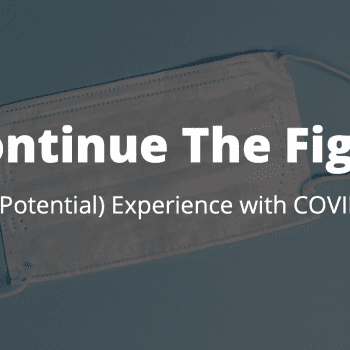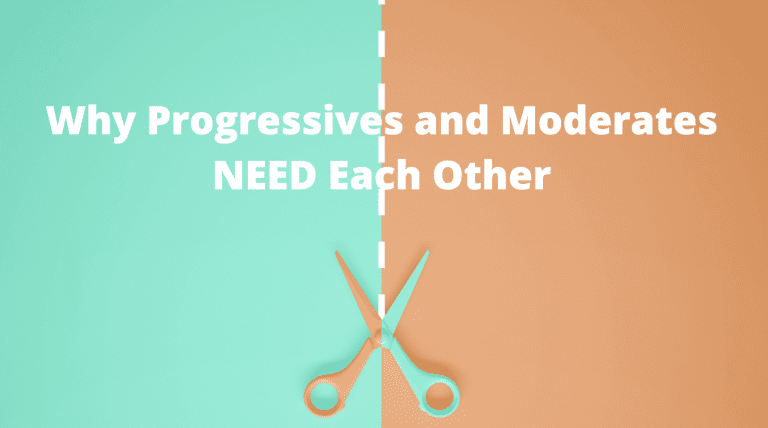On Wednesday, Glenn Beck, the uber-conservative, tea party-ish, Mormon political commentator and personality took to the airwaves to  announce that he was going to be making a “potentially lethal” career move that would put his new television network and non-profit in jeopardy. But with tears in his eyes, he looked directly in to the camera and said, “I have never, ever taken a position that is more right than this.” Following the emotional build up, Beck announced that he would be loading up a tractor trailer with teddy bears, soccer balls, and hot food and driving it down to McAllen, Texas to encourage the nearly 3,000 undocumented immigrant children whose lives and well-being are trapped in the middle of the intense immigration debates in Washington. This action by Glenn flies directly in the face of all of the right-wing’s positions on immigration and border control. In essence, he’s aligning himself with the pro-immigration movement and against his own audience. That’s a pretty gutsy move.
announce that he was going to be making a “potentially lethal” career move that would put his new television network and non-profit in jeopardy. But with tears in his eyes, he looked directly in to the camera and said, “I have never, ever taken a position that is more right than this.” Following the emotional build up, Beck announced that he would be loading up a tractor trailer with teddy bears, soccer balls, and hot food and driving it down to McAllen, Texas to encourage the nearly 3,000 undocumented immigrant children whose lives and well-being are trapped in the middle of the intense immigration debates in Washington. This action by Glenn flies directly in the face of all of the right-wing’s positions on immigration and border control. In essence, he’s aligning himself with the pro-immigration movement and against his own audience. That’s a pretty gutsy move.
Now, I am not unaware that this is likely a very well planned publicity stunt on the part of Glenn Beck. I have been watching his show for years (which I find thoroughly entertaining) and know that Glenn is either a masterful actor who can cry at the drop of a hat or else incredibly emotionally unstable. But that’s beside the point.
Over the past few months, Glenn Beck has been taking a number of political stands on various issues that put him in direct opposition with much of his viewing audience and Republican support base. His choices seem to be motivated by the morality and life principles that arise from his faith and he is willing to take a stand for them even if it means offending many of his fans. Whether a brilliant reverse psychology technique or a genuine change of heart in Beck, he seems to be very committed to standing for what he believes to be right even when it means offending fans and losing customers. And in our political landscape today, this sort of demeanor virtually unheard of.
A few years ago I had the privilege of being a part of some conversations with some of the leading evangelical pastors in the nation. In the middle of one of the conversations that we were having around issues of evangelical engagement with social justice, one well-known pastor spoke up and jokingly said, “Well, you know what they say, money is our primary hermeneutic!” The whole group chuckled uncomfortably. I sat in a semi-shocked state for a few minutes thinking of the truthfulness and implications of that statement.
How much of evangelical theology, political engagement, and social activism is rooted in maintaining a consistent financial support base? How many churches, organizations, and leaders have conversations every day about issues they wish they could take a stand on but simply cannot because they would lose financial support from their donors or church members. How many opportunities have evangelicals had to take a stand and pave a new road forward on a number of vitally important issues but have been silenced because they valued their financial security and public clout over standing for what they know to be right?
I am not naive when it comes to running a church, organization, or non-profit. I understand that many pastors, seminary presidents, and organization heads livelihood solely rests on whether or not they please their congregations and financial supporters. I fully understand how this works. And I also understand that Glenn Beck is not even a fair comparison- he’s a multi-millionaire who could easily lose a couple thousand financial supporters and network subscriptions and do just fine. But none the less, there is something surprisingly refreshing about Beck’s willingness to go against the grain for something he believes is right. Something that seems very, I don’t know, Jesus-y. Something that is missing from most evangelical organizations and churches today.
There are so many things that many of us have become convinced are good, righteous things to stand for but are afraid to speak up because of the potential for backlash and loss of support. Going against the grain on one single issue can instantly get you pushed out of networks, churches, and companies. Standing for what you believe is right will often lead to being marginalized, scrutinized, and condemned. But at the end of the day, it seems to me that that’s exactly what’s supposed to happen when we follow Jesus. There are going to be major consequences when you face the religious rulers of our day and call them to the subversive way of the Kingdom. When you conspire against Caesar, you’re going to end up getting falsely accused and crucified. That’s the way that Jesus taught us by his example. That’s the way that the Apostle Peter says we all should walk in:
For God called you to do good, even if it means suffering, just as Christ suffered for you. He is your example, and you must follow in his steps.- 1 Peter 2:21 NLT
Sometimes following Jesus means standing against what the religious and cultural elite of our day is standing for. Sometimes it means sacrificing personal security to do what you know is right. Sometimes it means being willing to surrender all of your privilege, power, and position in order to be a voice for the voiceless. Sometimes it even means laying down our careers, successes, and lives out of love for and for the sake of our enemies.
I know that none of this stuff is new. I know that Glenn Beck isn’t the only or even the best example of someone living in this manner. But what strikes me is that if one of the most extreme political personalities of our day can change his mind and heart on an issue because he believes it’s more in line with his personal and religious values, then why can’t evangelicals and our leaders? Why are we so committed to towing the party line in order to be accepted and maintain our positions of power, wealth, and security? Why do we continue to allow our theology, political, and social views to be dictated by the donations of our congregations and organizations supporters instead of trusting that when we stand for what is right and good that God will work on our behalf to sustain and uphold us?
Just imagine. If all of us were freed from the pressures of money and position. What would we say? How would we live? What would we take a stand for? It is my prayer that our leaders and that each of us individually would be willing to sacrifice all that we have to do what’s right, to work to establish the Kingdom of God on earth as it is in heaven. Because until we are willing to do that, transformation will never come to our communities, our culture, or our world. God is calling us to follow in Jesus’ example. It’s a way of pain, suffering, and marginalization. But it’s also a way of abundant life and extravagant beauty. It’s a life of faith and trusting in God for our every need, but then again, don’t we have the promise that when we seek first God’s Kingdom that everything that we need will be provided for us?
So if there is one thing we can learn from Glenn Beck (and subsequently Jesus) it is that we must be willing to go against the grain to stand for what we know to be right, even if it costs our job, wealth, power, position, or privilege. We must be willing to stick our necks out and seek first the Kingdom of God and his righteousness. If we do, God will take care of everything else.
Just a thought.











